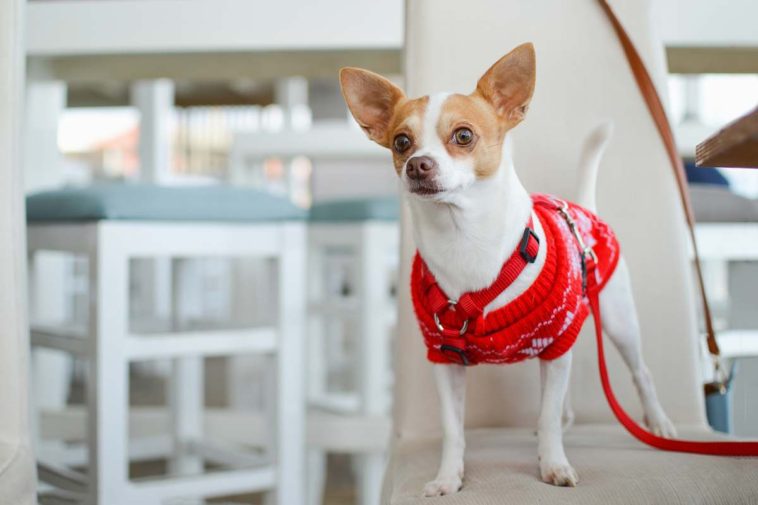You left your Chihuahua home alone for a few hours and came back to a tsunami of destruction: torn sheets, chewed up slippers, and so on. You wonder – do Chihuahuas have separation anxiety. If yes, is there a solution to it?
Many dog breeds are prone to separation anxiety and the Chihuahua is one of them.
So it isn’t your fault if your Chi displays behaviors like crying, whining, howling, etc. upon be left alone. You certainly haven’t over-coddled your pet.
Separation anxiety can happen to any dog but there are ways to handle and manage this issue.
Let us find out.
Do Chihuahuas Have Separation Anxiety? What Are the Causes?
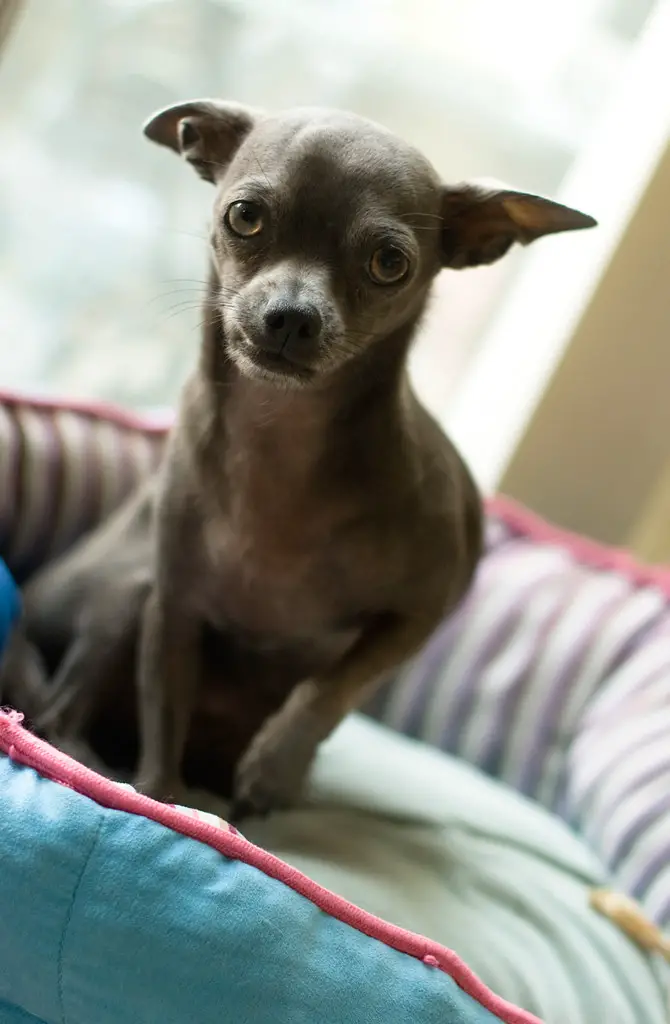
A Chihuahua’s separation anxiety is triggered when the Chihuahua owner leaves it alone for prolonged or even for a short period of time.
There is no conclusive evidence why some Chihuahuas are more prone to this problem. It is seen in adopted dogs although many Chihuahuas with perfectly normal and loving upbringings might also have SA.
1. Changes in guardianship
Chis that are most anxious are either re-adopted or have undergone a big change in terms of a completely new owner. This is one of the most common cause of separation anxiety in most dogs.
Often, people give up their Chihuahua to a shelter when they find it too hard to train or too difficult to manage. Such pets are more likely to develop separation anxiety.
2. Change in its schedule
If you have never left your Chi home alone and suddenly have to start doing so owing to changes in your circumstances, then it could trigger separation anxiety in your pet.
The degree to which your Chi will display the signs of anxiety will depend upon how long you have to leave it alone.
For example: a Chihuahua owner who has been working from home for years suddenly starts going to office. Doing so requires her/him to leave their pet home alone for over 6-8 hours. This could easily trigger severe anxiety in the tiny dog.
3. Change in ownership/death
A Chi that loses its owner or their sudden absence is also known to suffer from intense anxiety symptoms. Other major changes in its life like a family member moving away to college, or the arrival of a new baby, etc. could also trigger anxiety in this sensitive dog breed.
4. Moving to a new place
Chis love their homes and surroundings and a sudden change or move to a new residence or unfamiliar place could stress them out. If you have to leave your Chi alone in the new house, it could further aggravate the symptoms.
5. Being returned to shelter after adoption
This is the worst trigger for separation anxiety and can happen to any dog – not just a Chi. A dog that has a home but is sent back to the shelter could stop trusting humans and could become sad, depressed, and overly anxious all the time.
6. Past trauma, abuse, neglect
Many Chis that are born in litters thanks to irresponsible breeders, those who have been shipped long distances, or have been left in cages in pet shops, or generally malnourished as puppies, are also most likely to develop separation anxiety.
7. Genetic factors
There is also a genetic factor to separation anxiety. This is a small dog breed and it is probably aware of its small size. That makes it scared of everything/everyone larger than it. Add to it inadequate socialization and training, and you will have a nervous, anxious Chi on hand.
What Are the Signs and Symptoms of Separation Anxiety in Chihuahua?
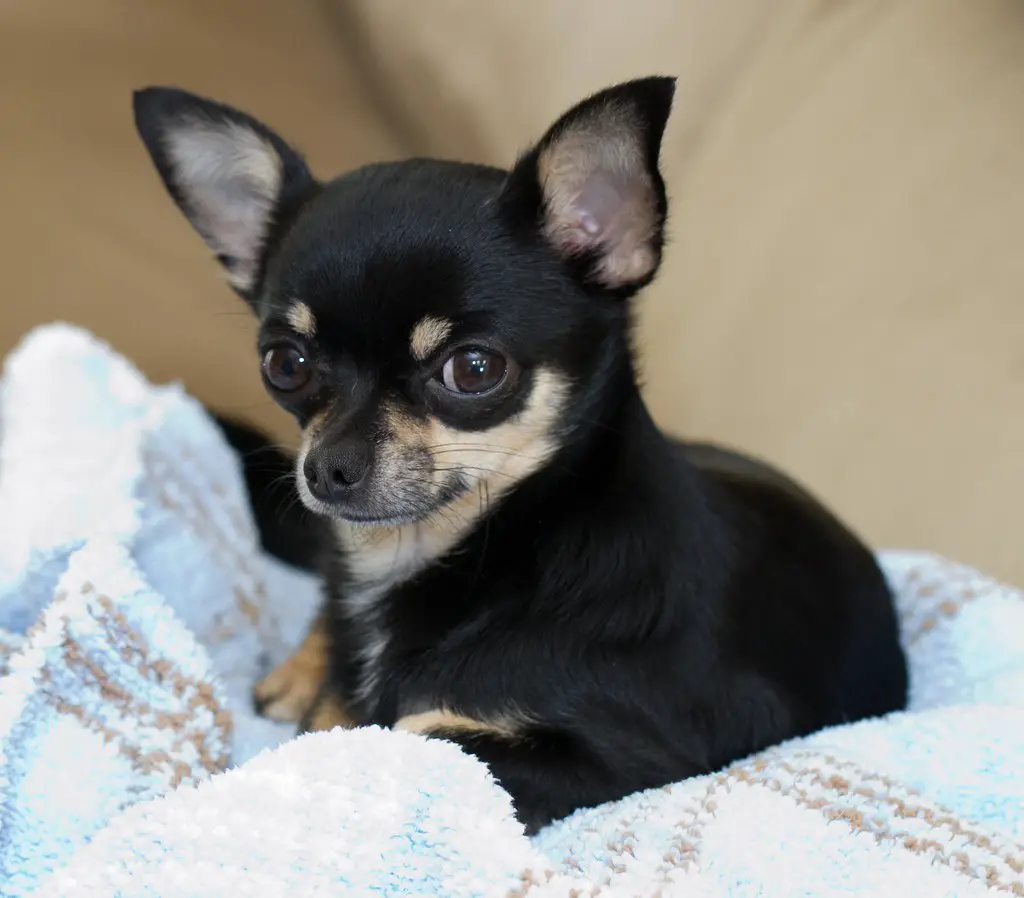
Most common signs and symptoms of separation anxiety in a Chihuahua puppy or adult are:
1. Panic mode
Your Chi will show you that it is terrified of being left alone. It might exhibit extreme stress when you are about to leave.
You can literally see the fear in your small dog’s eyes. We will never know what goes on in a Chi’s mind but separation anxiety is equivalent of a panic attack in humans.
Here are some panic behaviors your tiny dog might exhibit:
- Pacing, whining, trembling when you leave or are about to leave
- Excessive barking
- Howling
- Excess salivation, panting and drooling.
2. Defecation/urination
Some Chihuahuas have accidents and might urinate or defecate inside the house when you get your car keys ready and set to leave the house. It is important to address the question – is your Chihuahua puppy 100% house trained? – before labeling it as being anxious.
3. Destructive behavior
Some Chis bite, chew, and tear up objects when they are left alone. It is very important to determine whether this behavior is the result of separation anxiety or simply normal canine behavior stemming from lack of socialization and training. Most dogs with separation anxiety will chew around the doors or windows.
Remember: separation anxiety is real, legitimate stress and a dog with SA will be in this high-strung state nearly all the time.
4. Prolonged attempts to escape
Many Chihuahuas with separation anxiety try to escape the house and often get injured in the process.
What to Do if your Chihuahua Has Separation Anxiety?
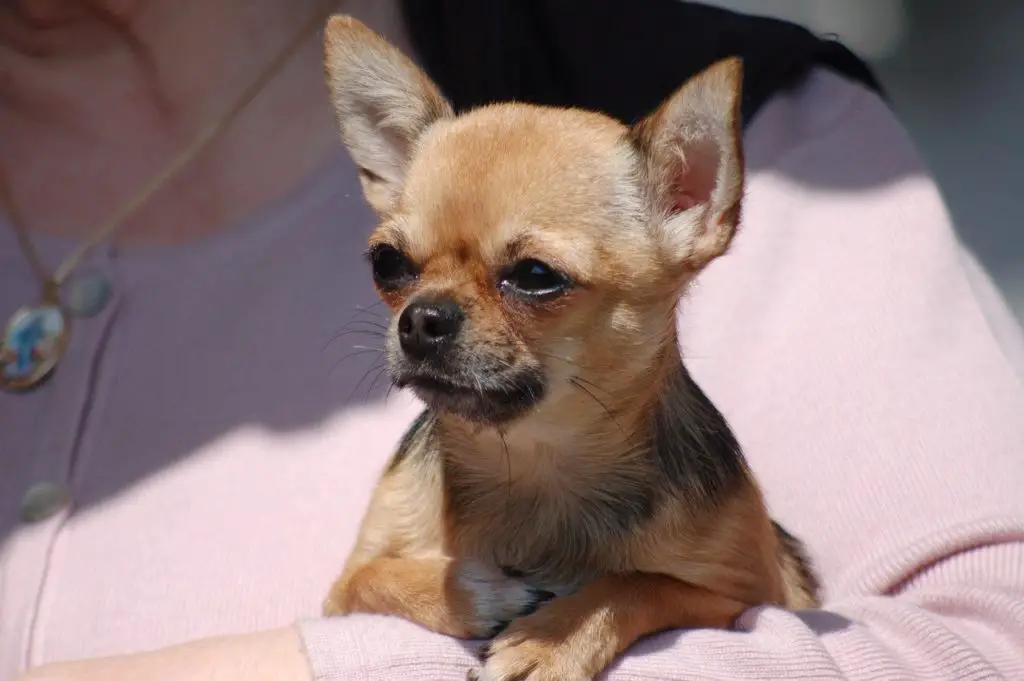
The American Kennel Club recommends the following steps to deal with your dog’s separation anxiety:
1. Crate train your Chihuahua puppy
Crate training and house-training your Chihuahua should always go hand-in-hand. A crate is an important training tool and can be your biggest ally when it comes to preventing separation anxiety in your pet.
Many dog owners believe that a crate is inhumane and cruel. That isn’t the case. In fact; it can prevent your Chi from getting injured and also provides a safe, comfortable place for your small dog to rest.
You need to make sure that your Chi relates its crate to a safe and ‘happy’ place. Add some warm blankets, toys, and treats so your Chi loves to spend time in it.
Remember that many Chihuahuas with separation anxiety might also have confinement anxiety. So make sure that crating does not aggravate your dog’s anxiety.
2. De-sensitize your Chi to being left alone
The best way to prevent separation anxiety in an adult Chihuahua is to train your puppy from a young age to be left alone.
Start by leaving your Chi alone for short periods. When you come back praise and reward it. It helps if you don’t make a ‘big deal’ of leaving and coming back. Act cool. Walk in and then do your stuff before sitting down to pet it. This will help your Velcro dog understand that going away is a completely normal process.
3.Use rewards and treats
Use high-value treats and rewards that your Chi loves when it starts acting anxious when you are about to leave.
Let it associate your ‘going away’ with something positive.
4. Make your departure ‘routine’ and ‘easy’
A pet parent can do this by picking up the car keys and walking back indoors to work at the computer. Do this several times until the dog stops associating ‘picking up the keys’ with the pet parent’s departure. This will make it less stressful when you actually leave.
5. Train it in basic obedience
Basic dog training for your Chihuahua has multiple benefits. In the case of preventing separation anxiety, it will get your pet to listen and follow your commands.
For example when you are about to leave the house and your pet starts to act up or follows you out of the door, you can use the command ‘Stay’. This will certainly reduce some of the destructive behavior that might stem out of your dog’s anxiety.
6. Never scold or shout
If your Chi does end up urinating or defecating, then do not shout or punish it. Stay calm. Shouting and hitting will only heighten its anxiety and might even make your Chi aggressive.
7. Exercise your pet
Your small Chihuahua still needs daily exercise. This is very important for its mental and physical health. A well-exercised Chi won’t have the energy to indulge in destructive behavior like furniture chewing, ripping linen, etc.
Take your Chihuahua outside at least 2-3 times a day for short duration – 15 minutes each. This will help your dog expend energy and also release endorphins (feel-good hormones) to calm your pet.
8. Try medication and supplements
Discuss the use of medicines or OTC supplements to calm your pet’s anxious behavior. Prescription medicines for canine anxiety include alprazolam or amitriptyline (Adaptil®). These are known to calm anxious pets.
OTC dog calming supplements contain hemp seed oil or hemp powder. They help reduce stress, promote relaxation, and reduce restlessness.
You can also try Bach Flower Remedies or Valerian root for calming your pet. Always discuss any supplement with a vet first.
9. Understand that SA isn’t always preventable
Not all dogs can be completely cured of SA. If the above methods don’t show results, please speak to a certified veterinary behaviorist to help guide you and make the process smoother.
How Long Can I Leave My Chihuahua Home Alone?
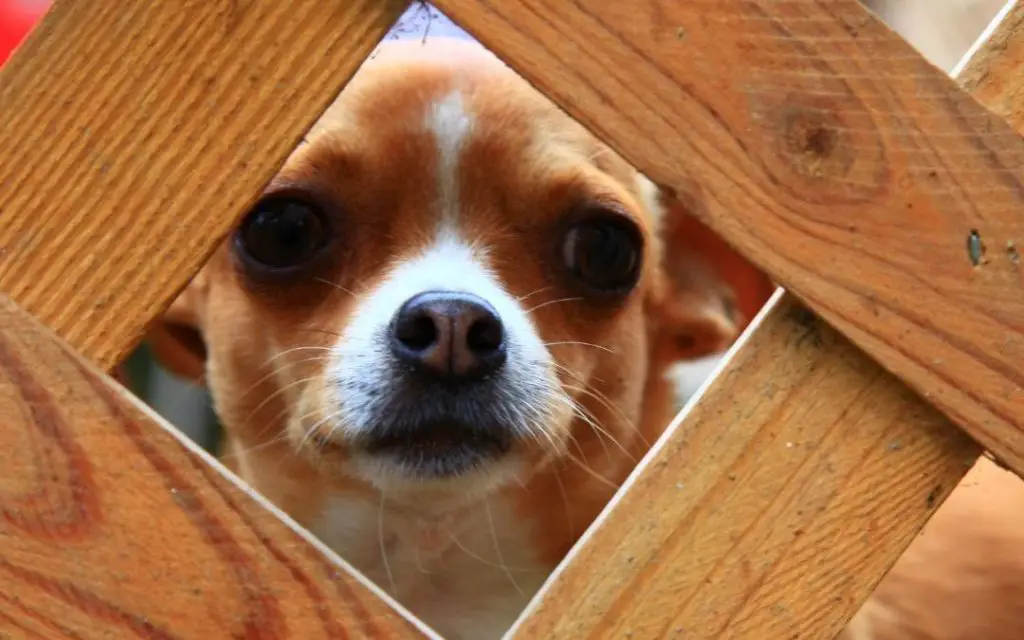
When you first start out, leave your Chi alone only for short periods of time. Slowly increase the duration.
If you have to leave your Chi alone for a long time, make sure it is well-fed and exercised. Also, give it adequate potty breaks.
A young Chihuahua pup will need at least 5-6 potty breaks. An adult will need at least 3 per day. You could arrange for a dog walker to walk your Chi during mid-day so it can relieve its tiny bladder and prevent indoor soiling.
If you have to leave your Chi alone for prolonged periods (more than 8 to 10 hours) consider boarding it or have a pet-sitter to watch it. You could even opt to bring home a second dog but always socialize both pets to each other before permanently bring the other one home.
Are all Chihuahuas Clingy?
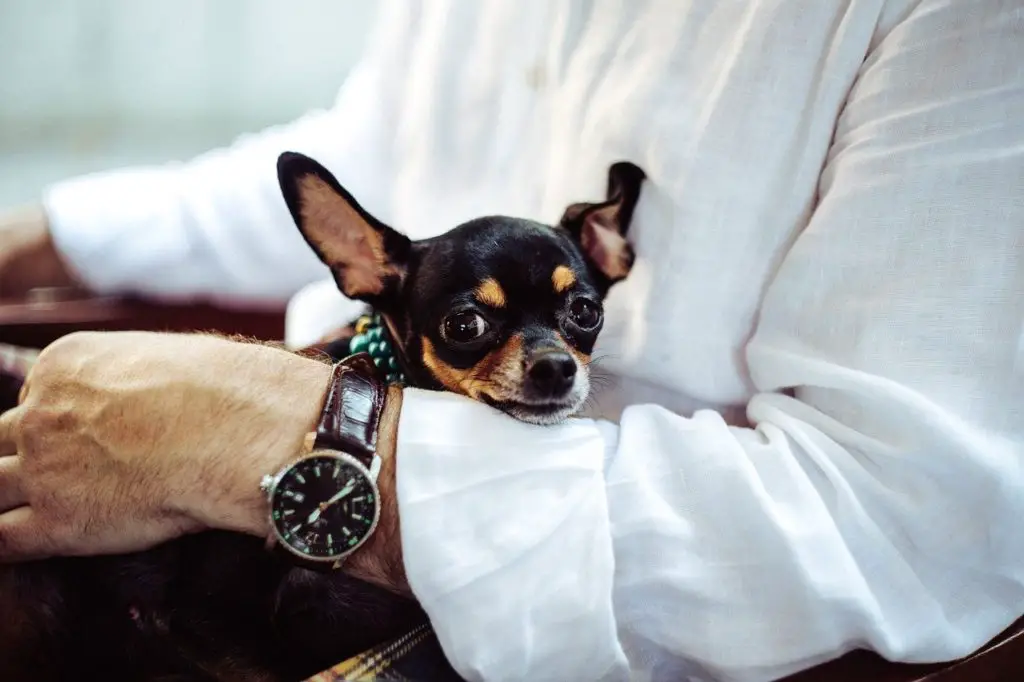
Every dog breed has gained notoriety for having a specific personality trait. Just like German Shepherds are considered born protectors, Golden Retrievers as affectionate therapy dogs, and Pit bulls as aggressive or mean; a Chi could be labeled as clingy.
However, clingy behavior is never a normal canine trait and much of it comes from the way the dog is raised as well as its genetic disposition.
If you don’t provide your clingy dog with adequate socialization and worldly experiences, then it will not break out of its shell and might remain clingy forever.
Many Chi parents like this clingy trait and also encourage it because they love having lapdogs and companion dogs and want them to literally ‘stick’ to them like Velcro. This further encourages the Chihuahua’s clinginess.
Do Chihuahuas Get Attached to One Person?
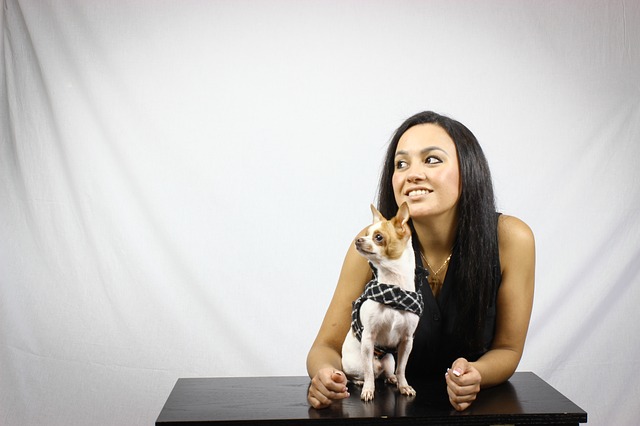
Chihuahuas with severe separation anxiety often bond with one person and get into a panic mode when that person leaves even for a short period of time.
This is usually seen in Chis that are adopted by individuals living alone. In the majority of the cases, Chihuahuas that are adopted by multi-member families might not have an issue of this sort.
Having said that, there are Chis that might still bond with one person in the family. Typically this person is the one who is home most of the time. A Chi might even bond with someone whose energy levels and personalities match theirs.
FAQs on Do Chihuahuas Have Separation Anxiety?
1. Where should a Chihuahua with separation anxiety sleep?
You can provide a cozy, comfortable bed to your Chi. Donut beds are a great idea as they have the same texture as a mother dog’s coat and could help your Chi feel protected. You can place the bed in your room. You could also crate your dog provided it does not aggravate your Chihuahua’s separation anxiety.
2. Do Thundershirts work for separation anxiety?
Yes, many dogs do well with Thundershirts as they ‘hug’ the dog and make it feel more secure. The vest/shirt applies calming pressure around your pet’s torso.
Conclusion – Do Chihuahuas Have Separation Anxiety?
Yes. Many Chihuahuas are known to have separation anxiety. It is mainly seen in rescued dogs or dogs that have not been desensitized to staying alone.
It can also come on suddenly due to a change in your pet’s environment such as moving to a new house or having a new baby.
We hope this guide helps you decode your Chihuahua’s separation anxiety.
